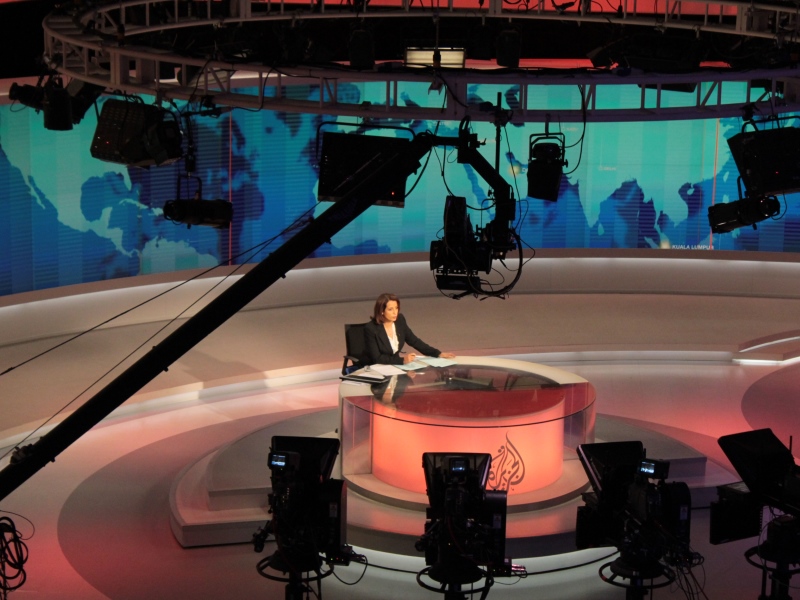 Al Jazeera English Headquarters, Doha. Photo: Paloma Haschkem, unaoc, Flickr.
Al Jazeera English Headquarters, Doha. Photo: Paloma Haschkem, unaoc, Flickr.
In English-language analyses, regime-driven sectarian and Islamist politics in the context of geopolitical rivalry are by far the most commonly identified regional driver of conflict within Iraq and Syria. Yet, surprisingly little empirical evidence has been put forward with regard to how regimes rhetorically promote sectarian identities for political purposes. One of the prevailing assumptions is that pan-Arab satellite media channels and in particular the Qatari-funded Al-Jazeera, the Saudi-funded Al-Arabiya and the pro-Iranian Al-Mayadeen are responsible for airing and stirring sectarian sentiments in the region. The former channels have, however, also provided a platform for pro-reform and pro-democracy voices.
This project re-assessed assumptions about whether and how satellite channels promote sectarianisation by evaluating programme content, editorial style, and viewer participation in chat shows and associated online forums. This undertaking aimed to not only provide a more thorough understanding of how the largest Arab media outlets are dealing with or indeed inciting sectarian tension, but also to provide valuable contextual information to help inform how UK policymakers should engage with them.
This project formed part of the Conflict Research Programme, funded by the UK Department for International Development to provide research and policy advice on how the risk and impact of violent conflict might be more effectively reduced through development and governance intervention.
Project Outputs
Research Team
Jessica Watkins | Principal Investigator
Jessica is Research Officer at the LSE Middle East Centre.